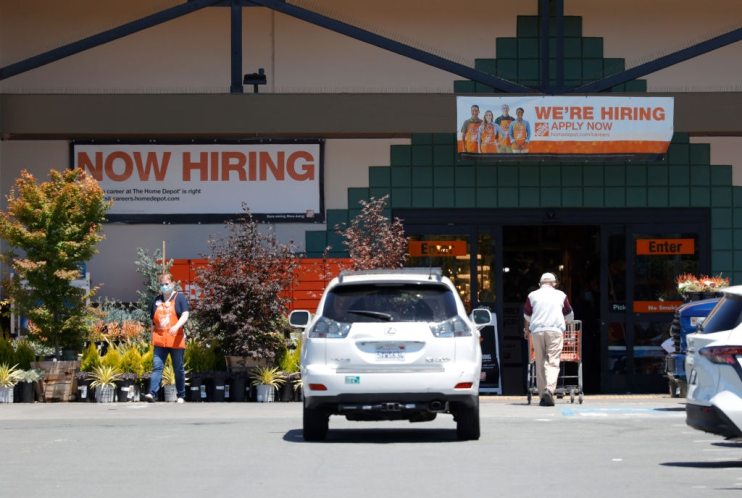Pound rallies against the dollar on weaker than expected US jobs growth

Hiring in the US economy in August plunged below expectations as the spread of the Delta variant of Covid across America weighed heavily on employer and employee confidence, prompting the pound to rally against the dollar.
Figures released by the US Labor Department show nonfarm payrolls jumped by 235,000 last month, over 500,000 below analysts’ estimates.
The pound strengthened 0.22 per cent against the greenback on the news to buy $1.3861.
The US jobless rate dipped to 5.2 per cent in August, down from 5.4 per cent in the previous month. The total number of unemployed people in America edged down to 8.4m.
Workers have been reluctant to find roles amid a surge in Covid cases across the country. A lack of childcare provision, changes to career goals and early retirements engineered by the pandemic has restricted labour supply.
Global supply chain snarl ups have limited US businesses’ ability to secure raw materials, which has hit production. Meanwhile, a cooling of demand has dampened business confidence, tempering hiring activity in the process.
Jobless volumes and the unemployment rate are both still far below their pre-Covid levels. There are currently 5.7m more people without a job in the country, while the jobless rate is 1.7 percentage points higher than in February 2020.
Economists polled by Reuters had expected the US economy to add 728,000 jobs in August.
The depressed rate of jobs growth indicates the US Federal Reserve will hold off until the final weeks of the year to start to repeal the wave of monetary stimulus measures it unleashed in response to the Covid crisis.
Last week, Fed chair Jerome Powell said the central bank will only start slowing the pace of its monthly bond purchases until the US labour market is in strong enough health to cope on its own.
Powell provided no official timeframe in his speech at the annual economic symposium at Jackson Hole, but said it is likely to be sometime this year.
Joe Little, chief global strategist at HSBC asset management, said: “The Fed still has some way to go to meet its goal of maximum employment. We consider it a close call as to whether the Fed formally triggers tapering at its November or December policy meeting.”
Poor jobs growth suggests US GDP growth in the third quarter could come in much lower than first thought. Analysts at Goldman Sachs and JP Morgan have revised down their initial estimates recently.